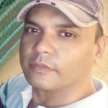10 Books to Read That will Make you Sound Smart
The party is over. In fact, I participated in an event and recommended 10 Books To Read That Will Make You Sound Smart.

Ten little books to make you smart! Books to read to become smarter, Reading can make people smart, reading can broaden one's horizons, reading can cultivate sentiment, and reading can change destiny. So we still have to read more and read well.
I won't talk about the big reason, just talk about something that impresses me deeply. In the elementary school texts, I learned an article called the overall planning method and listed a few things to see how it can be done quickly and easily.
The general idea is to complete the cooking arrangements, wash the rice for 3 minutes, cook the rice for 20 minutes, kimchi for 5 minutes, wash the vegetables for 5 minutes, and stir-fry for 15 minutes. Ask how long the meal will take to prepare.
The best arrangement should be to soak the vegetables in water first, then wash the rice and cook the rice, and complete the washing and frying work during the cooking process. The total time should be 25 minutes to complete.
In the past, I might think that I should complete it one by one in order. After studying this text, I will develop a habit of doing everything, thinking about how to arrange the most reasonable, efficient, and most time-saving.
Through reading, I learned to think about how to save time and improve efficiency, which really benefited my life.
For another example, through reading, I also understand the time value of funds. Today's 10,000 dollars is not the same as the 10,000 dollars ten years ago. Then, based on the inflation rate, how much is the difference between the two? No longer stupidly thinking that with an inflation rate of 5%, taking 3% interest is more money. In short, after studying, people can still distinguish between right and wrong, and they won't be sold and paid for the money.
Our ancestors used to live in the countryside for generations, living a life of facing the loess and back to the sky, repairing the earth every day but earning very low income, and living a very hard life. Reading allows us to leave the countryside and have a stable job. Let's not say this. In short, it is the best way to change our destiny. Don't believe in "reading is useless".
Today, I will introduce to you "10 Books to Read That will Make you Sound Smart" in the eyes of experts.
Books That Will Make You Smarter and Intelligent in Every Situation
Table Of Contents
1. Discourse on Method and Meditations on First Philosophy
2. The Eighteenth Brumaire of Louis Bonaparte
3. Civilization and Its Discontents
4. The Use and Abuse of History
5. Freud And The Non-European
6. The Uprising: On Poetry and Finance
7. Pathologie de la vie sociale
8. On Translating Homer
9. The Order of Time
10. The Perks of Being a Wallflower
> FAQ about Books that Make you Sound Smart
1. Discourse on Method and Meditations on First Philosophy
by Rene Descartes.
I read this book in my freshman year. At that time, I was bored and pulled the thinnest book from the shelf. After reading it, I suddenly felt that the whole person became smarter (mainly because of the greater room for intellectual improvement).
It is Descartes' first work and a very young book. It is surprisingly short, with only 60 pages in the main body, but it has deeply shaken the entire history of Western philosophy. It is a good choice to enter the history of philosophy from it. The content, the original title of the book has already stated clearly,
"Talk about the correct use of my own reason to seek the truth in various disciplines", to make it clear that as long as I use reason, there is nothing I can't understand. Many famous sayings in the book are already well-known, such as conscience is the most evenly distributed thing in the world, I think, therefore I am, and so on.
Descartes’ thinking was clear and clear, and he applied the rules found in logic, geometry, and algebra to his thoughts (don’t forget, he is also an important mathematician). This method later made me wonder when I didn’t understand the problem, and always benefit from it.
2. The Eighteenth Brumaire of Louis Bonaparte
by Karl Marx.
Western pamphlet writing was originally used to express opinions on current affairs. This writing method makes it difficult for pamphlets to escape the fate of rapid decay, but Marx’s book has undoubtedly withstood the test of time.
A large number of characters who have written "destroyed their fame", and those famous celebrities can only be known with the help of annotations. In the book, what Marx is dissatisfied with is that many people clearly think that Louis Bonaparte is ugly, but it is easy for readers to regard him as a hero who changes the situation.
What he had to do was to demonstrate how the interests of the various groups at the time were divided and changed so that Louis Bonaparte and his mediocre group could succeed in a coup. It is not interesting to read this pamphlet in the Trump farce era, but few scholars now can write like this there is no "data", no "investigation" in the book, too thin, too ambitious, and too interesting.
The advantage of Marx is also that he is very good at writing. Levi Strauss once said that he would read dozens of pages of "The Eighteenth of Fog Moon" every time before writing a book to find a sense of expression.
3. Civilization and Its Discontents
by Sigmund Freud.
He is a very good person who asks questions. This book asks, why are people hostile to civilization? Why do the more civilized humans feel more pain? Why is it that people "cannot bear the massive setbacks that society imposes on him when satisfying his cultural ideals"?
He also believes that politics is completely powerless for human happiness, "not everyone is worthy of love." The book touches on most of the issues that contemporary thinkers are concerned about, and also discusses the status of women in civilization, making it a very good basic discussion text in all aspects.
4. The Use and Abuse of History
Among the "Pocket Classics" is Friedrich Nietzsche's "The Use and Abuse of History", which is also a frequently read pamphlet. Nietzsche is a master in this area. Reading Nietzsche is the most healing time (his autobiographical catalog is this style: Why am I so smart, why I wrote such a good book...). The full text of this book is 100 pages.
The original title is "The Advantages and Disadvantages of History", and the English version is "The Use and Abuse of History." Contrary to what many people think, Nietzsche is not very easy to read in my opinion. Many texts are "hyperlinked" together. Concepts are often wrapped in tortuous prose, which can be called a kind of stem-like writing.
The point of view in the book is simple in the end, that is, history is for strong people to read; history is necessary for individuals or nations; but if the "sense of history" reaches a certain level, it will eventually harm and ultimately destroy a person or nation. Even the life of the cultural system. However, we must pay attention to "Nietzsche's use and abuse" when reading him.
5. Freud And The Non-European
by Edward W. Said
The booklet I read recently is the last book of the famous postcolonial thinker Edward Said during his lifetime. It is also a collection of lectures, so it is easy to read. The discussion is Freud's last book, "Moses and Monotheism."
In the era of the Nazis, Freud wrote this book, and he actually proved that Moses was an Egyptian nobleman. He chose the Jewish nation and taught him monotheism from Egypt (this book itself is as wonderful as a detective novel).
This is undoubtedly a Jew "anti-Semitic" book, a book "handing a knife" to the Nazis. Palestinian Christian immigrant Said interpreted this book in the post-colonial era and discussed the hot issues of identity politics.
It is very interesting. The book specifically mentions that archaeology is the privileged Israeli science par excellence, and the reasons are self-explanatory. Palestine archaeology can be said to be the legacy of Freud's book.
About the Creator
Muhiuddin Alam
I'm Muhiuddin Alam, a blogger and content writer. Explore book recommendations and reviews of fiction, novels, and nonfiction on your trusted site ReadingAndThinking.com. & Geek Book Reviews.com






Comments
There are no comments for this story
Be the first to respond and start the conversation.